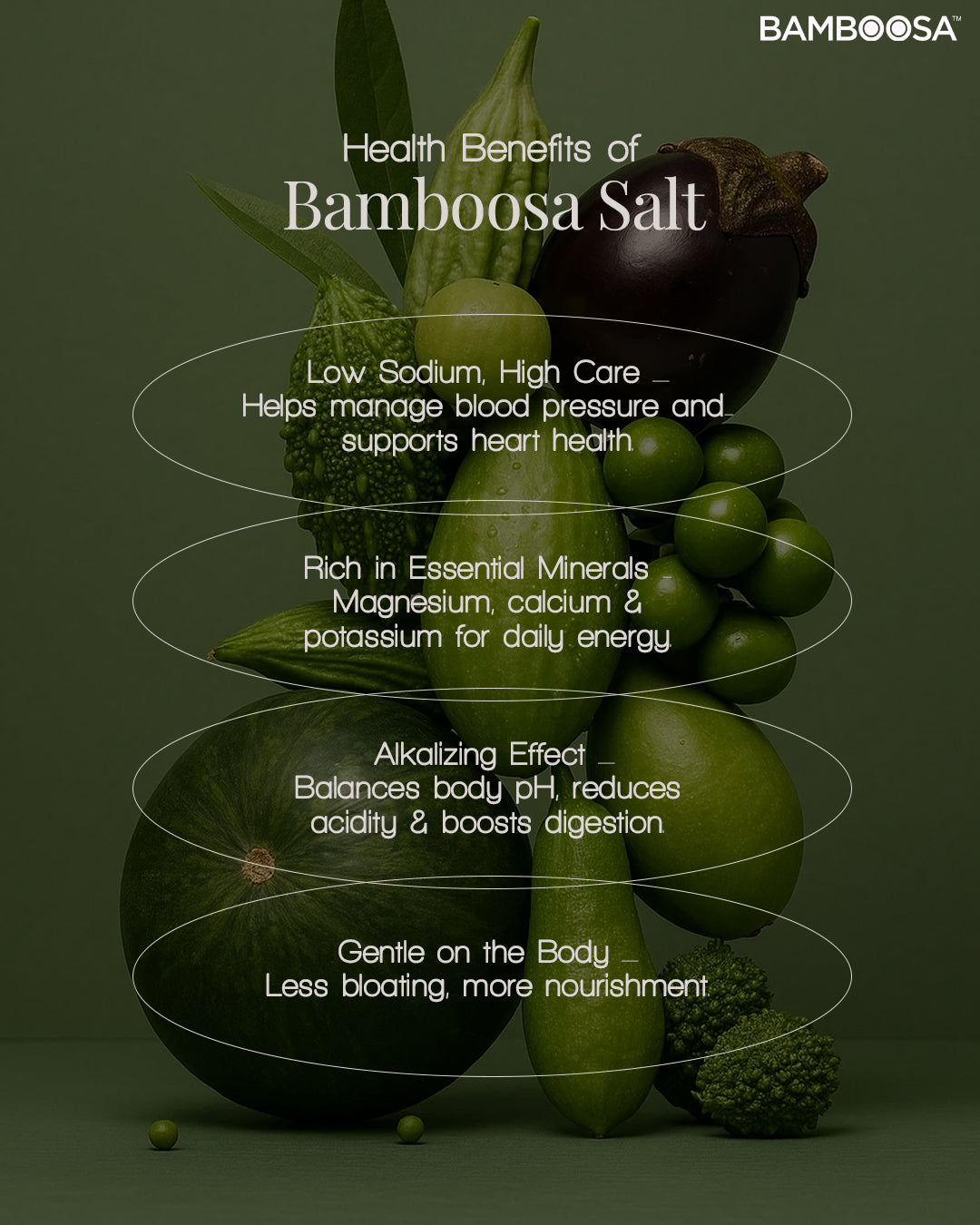Welcome to Bamboosa
India’s First Bamboo Salt Brand
Welcome to Bamboosa, India’s first brand dedicated to bamboo salt, a wellness staple trusted in Korea for centuries. At Bamboosa, we care about what goes on your dinner table. That’s why we created India’s first bamboo salt, a natural, mineral-rich salt that makes every meal healthier. In most Indian kitchens, regular salts are either too high in sodium (risking hypertension & heart issues) or too low (causing iodine deficiency over time). Bamboosa closes this gap with a smarter choice: a 100% natural, alkaline bamboo salt, packed with minerals and crafted through traditional roasting methods.
Certified & Trusted
Bamboosa is FSSAI certified and tested for quality and purity by CSIR–CSMCRI, a NABL & NABET accredited national laboratory.
How Bamboosa Salt is Made
THE ART OF BAMBOOSA
Bamboosa Bamboo Salt is crafted through a careful blend of traditional Korean roasting and modern quality standards. Pure sea salt is packed into bamboo, infused with minerals, and roasted nine times over charcoal to achieve deep alkalinity, rich mineral content, and a smooth, savory flavor. Each batch is cooled, extracted, and tested to ensure purity, taste, and wellness benefits. The result is a 100% natural bamboo salt that supports detox, digestion, oral health, immunity, and elevates everyday meals with clean, mineral-rich nutrition.

Bamboosa Roasted Bamboo Salt
A Healthy Pinch for Every Indian Kitchen
Bamboosa Bamboo Salt is a mineral-rich, alkaline salt that supports overall wellness. Traditionally used in Korea, it helps flush toxins, neutralize acidity, and enrich daily meals with essential minerals like calcium, potassium, magnesium, and iron. Regular use may support immunity, digestion, heart health, joint wellness, oral care, and even skin and hair vitality.
Traditionally Used For:
Hypertension
Acid reflux & gastric issues
Arthritis & joint pain
Sore throats
Skin irritations
Note: Bamboo salt is not a substitute for medical treatment. Please consult a physician for specific health concerns.
Frequently asked questions
Is Bamboo Salt safe for daily use?
Yes. When used in moderation, Bamboosa Bamboo Salt is safe for everyday cooking and seasoning.
You can use Bamboosa Bamboo Salt just like regular salt , for cooking, seasoning, gargling, or even as a detox drink when diluted in warm water.
Where is Bamboosa Bamboo Salt made?
Our products are proudly crafted using traditional Korean and Indian roasting methods, combined with modern hygiene and quality standards, to ensure purity and authenticity.
My salt formed small lumps, is that okay?
Absolutely. Because Bamboosa has no anti-caking agents, it may absorb moisture and form small lumps. This is natural and harmless, just crush lightly before use.
How much does shipping cost?
Shipping is calculated based on your location and the items in your order. You will always know the shipping price before you purchase.
